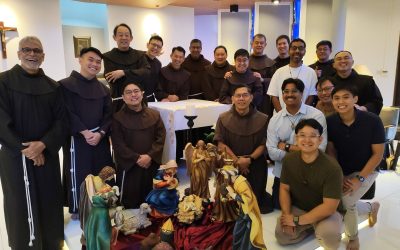
As a young woman in Burgundy, Hermina Grivot joined a missionary congregation, the Franciscan Sisters of Mary, hoping to be sent overseas, praying for the grace to become a saint, worrying only that the time of martyrdom had probably passed.
In 1898, the missionary bishop of Shanxi province asked her community for a contingent of sisters to staff an orphanage and dispensary in Taiyuan, China. Grivot was happy to be put in charge of this mission. The next year, she and her sisters embarked on the long and arduous journey to China. They were ill-prepared for what faced them – knowing not a word of Chinese, and having no particular training in education or nursing. Even the priests in the mission did not speak the language, but relied on translators. Nevertheless, they all energetically rose to meet the enormous challenges at hand.
As it turned out, they had arrived at a perilous time. Rising nationalist resentments over foreign exploitation were about to ignite in the Boxer Rebellion of 1900. The uprising targeted Europeans and Chinese converts to Christianity – Christianity being seen by many Chinese a tool of colonialism.
On July 9, a large number of Franciscan missionary in Taiyuan, including Bishop Gregory Grassi and the entire cohort of sisters, were arrested. Grassi urged the sisters to dress in Chinese clothes, but they refused: “Don’t stop us from dying with you,” they replied. They were all beheaded, Sister Hermina among them. She was canonized in 2000.





0 Comments